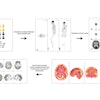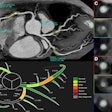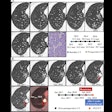A $2.7 million grant from the U.S. National Institutes of Health (NIH) to the University of Wisconsin (UW) in Madison will assess whether adopting virtual colonoscopy (also known as CT colonography or CTC) results in larger numbers of individuals being screened for colorectal cancer.
The NIH R01 grant is also designed to examine which primary provider characteristics "influence the adoption of VC, and to identify if certain perceived advantages and disadvantages of VC affect the extent to which a [primary care provider] uses VC," according to the university's health services department.
The grant also inaugurates a broad collaboration between the university's radiology department and its health innovation program, which has extensive patient-level data on defined populations, to research the impact of the technology on screening services.
With its high-volume VC screening program, UW offers an ideal environment for studying issues related to colorectal cancer screening, the e-mail stated.
"UW is the only existing 'test tube' for studying this issue, given our unique longstanding coverage environment for CTC screening," said Dr. Perry Pickhardt, an associate professor of radiology at UW who oversees the university's screening program.
In Wisconsin, several local healthcare providers include virtual colonoscopy screening as a covered service. This is not the case nationally; the Centers for Medicare and Medicaid Services (CMS) rejected a bid to reimburse VC screening services in May 2009.
Related Reading
How 2009 went right and wrong: VC's own worst enemies, October 28, 2009
JACR editorial: Medicare used double standard in VC decision, September 22, 2009
CMS rejects Medicare coverage for virtual colonoscopy, May 12, 2009
VC/AAA screening combo cost-effective in older adults, March 26, 2009
American Cancer Society recognizes virtual colonoscopy screening benefit, March 5, 2008
Copyright © 2010 AuntMinnie.com




















